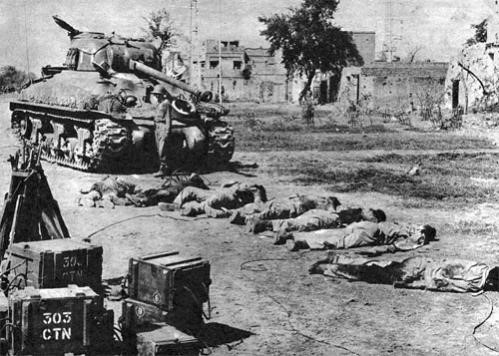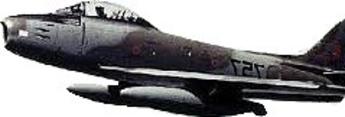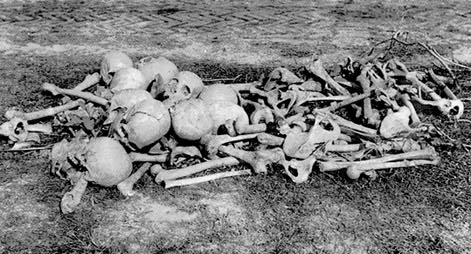The coffee arrived. We picked our cups. A smoky aroma filled the room. Coffee was refreshing.
“Shut up, Rashed!” he screamed. Again, a few heads turned toward us. In a suppressed tone, he continued, “Are you crazy? How could you think of something like that? Do you think the infantry detachment there would have spared you?”
In addition to the regular border rangers, the post maintained an infantry platoon, usually commanded by a junior officer. At that moment, I overlooked the presence of the infantry and its security setup. The genocide and the destruction in East Pakistan overwhelmed my thoughts and an urge for revenge was brewing inside. I concurred that the infantrymen would not remain idle, but insisted that I had the element of surprise.
“I could dodge them and race toward India in my jeep before anyone could figure out what had happened. You know how close the border is."
For a minute or so, Mahi remained in a state of shock, speechless.
“You can close your jaw now," I reminded him. "And don't give me that look. Passengers are watching."
We did not talk for some time. But I was not willing to accept the opportunity I had lost. I held his left hand with my right and tried to justify, "Look, my friend. We are at war, aren't we?”
“Yes, but I am sure they would have gotten you." He paused a little and then reminded me that the infantry detachment certainly had the advance knowledge of the generals’ visit and had made adequate security arrangements.
I thought for a few seconds and explained that they had directed their security arrangements outside, against India, and I had never seen any weapon pointing inwards. I repeated that the surprise and shock element would have worked in my favor.
“Even if they got me,” I said in a self-assured pride, “so what? Wouldn’t it be a glorious fall after such a feat in the war we are fighting, my friend?”
Another round of silence followed while Mahi kept gazing at me intensely.
“Rashed, I am worried about you."
All text on this site, copyright 2015, Rashed Chowdhury. All Rights Reserved. For reprint permissions, please contact the author's Editorial team: info@Editoro.biz
ADDITIONAL EXCERPTS FROM THE MANUSCRIPT


